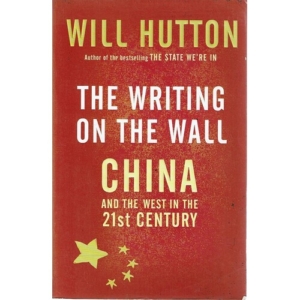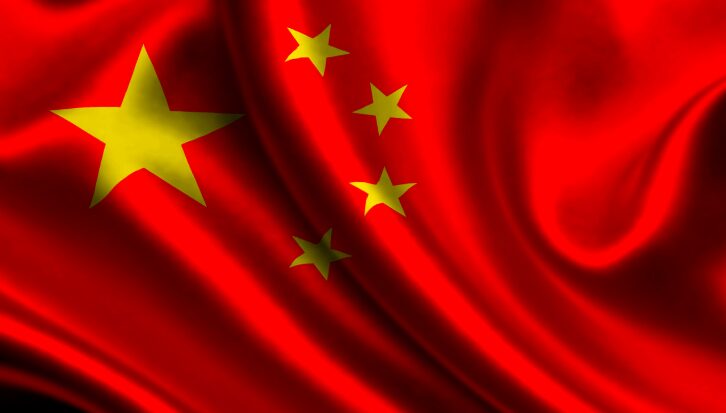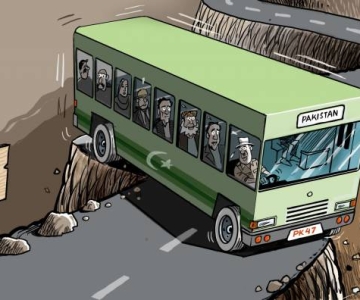BOOK REVIEW: Investigating the China threat by Khaled Ahmed
The fact that Globalisation has been allowed to sink to the level of a darwinist race among the inward-looking developed economies and third world new aspirants, has imperilled the normal sanity of response
Will Hutton is a British writer, weekly columnist, a governor of London School of Economics, a former editor-in-chief for The Observer in London, and he fears that the US might extend its trigger-happy policies to its troubled economic and strategic relations with China. He thinks America and Britain are particularly vulnerable to this kind of recklessness after abandoning their historical commitment to the ideals of Enlightenment. He thinks China has pulled itself up as it was wont to do in history but is vulnerable to the pluralism its burgeoning economy would require in the days to come. He wants the West to wait for that internal development.

The author thinks China got its opportunity when the West opted for Globalisation as a means of growth. Although the system is unfair because of the unwillingness of the rich North to be sensitive to the needs of the poor South, it has been good for America which got richer by a trillion dollars. The Asian miracle, including the economic explosion of China, stemmed from globalisation but it bred suspicion in America where affected communities began complaining of outsourced jobs, squeezing of wages and unfair competition with Chinese goods. The historically large US-China trade deficit of $202 billion in 2005 triggers hostile intent in the US.
The fact that Globalisation has been allowed to sink to the level of a darwinist race among the inward-looking developed economies and third world new aspirants, has imperilled the normal sanity of response. The dog-eat-dog trend was symbolised by the fact that World Trade Organisation talks aimed at extending trade liberalisation were suspended in July 2006, with none of the key actors prepared to initiate concessions for the sake of a settlement for the global good. China has played the system by the loopholes allowed by the North. In 2006, China economy was nine times what it was in 1978 and is now the fourth largest in the world. Only the US economy stood up to this example, when it surged at end of the 19th century.
Between 1981 and 2001, 400 million Chinese people have come out of poverty, and the per capita income of China has grown six times, doubling the number of people living in cities, and accounting for 150 million new workers, the biggest migration to towns in human history. China props the US economy, after its current account deficit grew to $800 billion, by buying up US treasury bills by spending out of its trillion dollar foreign exchange reserves. (American bonds have stayed up in price because of China despite their low yield and are crucial to its economy which should be squirming under a $3 trillion debt.) It is comfortable spending $30 billion on its army, and the sum could be actually three times more in reality. If some people in the US are alarmed, the Chinese leaders say with credibility that China is not into power politics, not interested in any kind of hegemony, and is a responsible member of the WTO, and has used its veto at the UN Security Council only twice till 2006.
China is in fact becoming the largest importer of oil, forcing the world oil production to its peak, after which the only way is down, which means the world faces new energy choices. China must feel a little uneasy bucking the US because the Strait of Malacca, through which it imports most of its oil, is flanked on one side by the US Fleet at Singapore, and at the other end by the US Indian Ocean Fleet. Kissinger says the next conflict is going to be over oil. Both the US and China are shopping around for oil in their own style. But China has got in through the chink under the US door. Up to 70 percent of Wal-Mart’s sales are produced in China and American consumers are a $100 billion better off because cheap Chinese goods have lowered consumer prices in the US. And China’s role in financing America’s trade deficit – through purchase of American bonds remains critical.
American nationalism is always near the surface, but after 9/11 it is intense and focuses on China as the next enemy. Some 20 bills have been introduced till 2006 in the US Congress proposing retaliatory action against China including the imposition of 27.5 percent duty on all Chinese imports and the ouster of China from the WTO. Washington wants revaluation of the Chinese currency renminbi but if China goes ahead with it, incomes of 900 million peasants in China will be affected because of the resultant cheapening of food, national savings would be damaged, and the economy will slow down, cutting back on exports, thus finally raising the inflation rates in the North. But America still makes sporadic decisions pushed by its nationalism: in 2005 it shot down China’s oil company CNOOC’s bid to buy UNOCAL.
America’s $11 trillion economy is still five times larger than China’s. It floats nicely on cheap Chinese goods, of which it takes 40 percent, the rest going to Western Europe with similar inflation-depressive effects. China also saves the US from the ill-effects of the money America is shelling out for President Bush’s Iraq adventure. On the other hand, China has not strictly kicked its habit of fighting wars – as in Korea, India and Vietnam, etc – and has sent ships to challenge Japan on Senkaku Islands and fired missiles from the mainland towards Taiwan, only to draw back and not let the situation reach a point of no return. This brings one to reconsidering the author’s hope that China’s economy will compel it towards pluralism and democracy. China remains very nationalist, and democracy will put an end to these acts of constraint on the part the non-democratic Communist Party. People’s will can be dangerous.
But one has to agree with Hutton that the West must wait for China’s system of control and corporatism to give way to Chinese multinationals and free enterprise beyond just small industries run by families. What China has is unlike what the West has. It is the Confucian governance and work ethic which it has historically exported to the not-always friendly Southeast Asian and Far Eastern neighbours, some of whom are non-Chinese. Confucius (d.479 BC) propagated heavenly purpose (tian) independent of the king for the sake of the well-being of the people (minben), as interpreted by the perfect civil servant chosen through strict competition based on self-discipline (li). It took the efforts of disciple Mencius and enlightenment 150 years after the writing of Analects by Confucius for the Chinese society to adopt his creed as tradition akin to faith, somewhat like the work ethic of the Protestants in Europe. *
The Writing on the Wall: China and the West in the 21st Century
By Will Hutton;
Little Brown 2006
Pp431; Price £12.99
Available at bookstores in Pakistan
This appeared in the Daily Times, Pakistan



